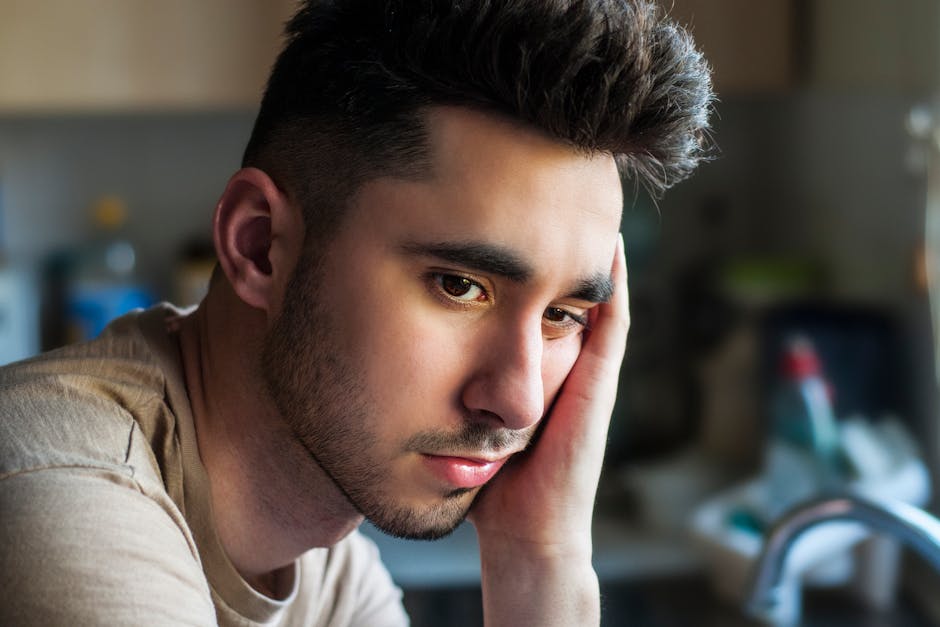TEENAGE ANXIETY TREATMENT
Photo by graham wizardo Originally Posted On: https://www.destinationsforteens.com/adolescent-teen-mental-health-treatment/teenage-anxiety-treatment/Friday, March 27th 2020, 8:38 am
 Photo by graham wizardo
Photo by graham wizardo
Originally Posted On: https://www.destinationsforteens.com/adolescent-teen-mental-health-treatment/teenage-anxiety-treatment/
WHAT IS TEENAGE ANXIETY DISORDER?
Too childlike to be grown up, too grown up to be childlike; that’s a person’s teenage years in a nutshell. It’s no wonder that feelings of anxiety can take over when you’re trying to find your footing. Anxiety can put a young person’s emotional state through a rollercoaster of fear, nervousness, uncertainty, anxiousness, shyness, and discomfort.
The Anxiety and Depression Association of America defines a General Anxiety Disorder (GAD) as a “persistent, excessive, and unrealistic worry about everyday things.” Teenagers experiencing GAD may begin to anticipate the worst in any situation, such as a test, athletic competition, or social gathering. In addition to severely impacting a person’s self-esteem, the anxiety can lead him or her to make dangerous or even life-threatening coping decisions.
HOW DO I IDENTIFY TEENAGE ANXIETY DISORDER?
Teenagers are not always forthcoming with their feelings, so it can be difficult for adults to identify the signs of an anxiety disorder. Parents should look for clues in their interactions. Is your child sleeping less? Does he or she appear less confident and convinced nothing good will come of going to school? Is your child in a constant state of worry, afraid of things that one would expect teenagers to be excited about? Answering yes to any of these questions may indicate the person in question suffers from an anxiety disorder.
Young people can also identify signs of GAD in friends and classmates if they know where to look. A teenager who appears to have lost confidence in his or herself, or has become completely obsessed with irrational fears and worries may be suffering from an anxiety disorder.
When identifying GAD in teens, it’s important to look for one or more of the following behaviors:
- Excessive and uncontrollable worrying
- Lack of focus, difficulty concentrating
- Fear and avoidance in decision-making
- Persistent belief that the worst is going to happen
WHAT CAUSES TEEN ANXIETY DISORDER?
Multiple factors can lead a young person to develop an anxiety disorder. School-related factors can include everything from test scores to relationship troubles. The latter is not specific to interaction with the opposite sex; a young person can experience conflict with teachers and other adults, in addition to their peers.
At home, a teenager’s anxiety can be brought on by interactions with his or her parents, or a conflict within the family, such as a divorce. Stress and trauma, such as a parent losing his/her job, or the sudden death, can severely impact a young person’s worldview and behavior. Anxiety disorders are also believed to be genetic, according to the National Institute for Mental Health.
WHAT ARE SOME TREATMENTS FOR TEEN ANXIETY DISORDER?
Parents with concerns about their child’s mental health should contact a health professional or treatment program before things get worse. Therapy may be the most effective route for dealing with teen anxiety. Again, young people may be reluctant when it comes to communicating their feelings, but creative therapies – drawings, music, or writing – can be effective in group or private sessions. Parents may also want to work with their teenager to develop coping strategies for anxiety and stress. Breathing exercises, realistic goal setting, and even taking a “time out” can help stabilize a young person’s rollercoaster of emotions.
TEENAGE ANXIETY TREATMENT AT DESTINATIONS
Teenage anxiety treatment is a valuable program for teenagers struggling with anxious feelings and addiction. Addiction can be overwhelming, and the fear of withdrawal, relapse, and consequences keep many teens away from treatment. At Destinations, our supportive staff will help your teen find their path in recovery.
Don’t let anxiety hinder your teen’s future. For more information about teen treatment programs, contact us today at 877-466-0620.
Information contained on this page is provided by an independent third-party content provider. Frankly and this Site make no warranties or representations in connection therewith. If you are affiliated with this page and would like it removed please contact pressreleases@franklymedia.com
More Like This
March 27th, 2020
December 12th, 2024
December 12th, 2024
December 12th, 2024
Top Headlines
December 12th, 2024
December 12th, 2024
December 12th, 2024







